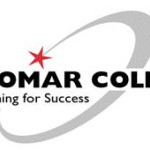- Branża: Education
- Number of terms: 12355
- Number of blossaries: 0
- Company Profile:
Founded in 1946, Palomar College is a public two-year community college in the city of San Marcos, located in north San Diego County, California. Palomar offers over 300 associate degree, certificate programs and is designated by the U.S. Department of Education as an Hispanic-Serving Institution ...
The geological era immediately preceding the Cenozoic Era and dating approximately 251-65. 5 million years ago. The Mesozoic was the era in which the dinosaurs flourished and the first mammals and birds evolved.
Industry:Anthropology
The geographic distribution of a trait such that it appears in high or low frequencies in various areas with little or no gradation between them. See clines.
Industry:Anthropology
The genus (Homo) and species (sapiens) categories to which modern humans belong. Homo sapiens evolved from Homo erectus over several hundred thousand years beginning at least 400,000 years ago. The first modern Homo sapiens evolved from archaic humans by about 130,000 years ago in Africa. Modern humans are referred to as Homo sapiens sapiens. The last sapiens refers to our sub-species or variety designation.
Industry:Anthropology
The genetically inherited condition in which there is a marked deficiency of pigmentation in skin, hair, and eyes. An individual with these traits is an "albino. " Since the gene for albinism is recessive, it only shows up in the phenotype of homozygous recessive people. Albinos have sunlight sensitive eyes and skin. They are also more likely to develop skin and eye cancers. This is a pleiotropic trait.
Industry:Anthropology
The genetic makeup of an individual. Genotype can refer to an organism's entire genetic makeup or the alleles at a particular locus. See phenotype.
Industry:Anthropology
The full genetic complement of an individual (or a species). In humans, it is estimated that each individual possesses approximately 3 billion nucleotides in all of the DNA that makes up his or her genome. See Human Genome Project.
Industry:Anthropology
The gas transporting protein molecule that normally makes up 95% of the volume of red cells in blood. There are usually about 270,000,000 hemoglobin molecules in each red cell.
Industry:Anthropology
The full component of chromosomes normally found in somatic cells. In humans, the number is 46. See haploid number.
Industry:Anthropology
The full complement of proteins produced by an individual (or a species). It is estimated that each human produces approximately 90,000 types of proteins. See Human Genome Project.
Industry:Anthropology
